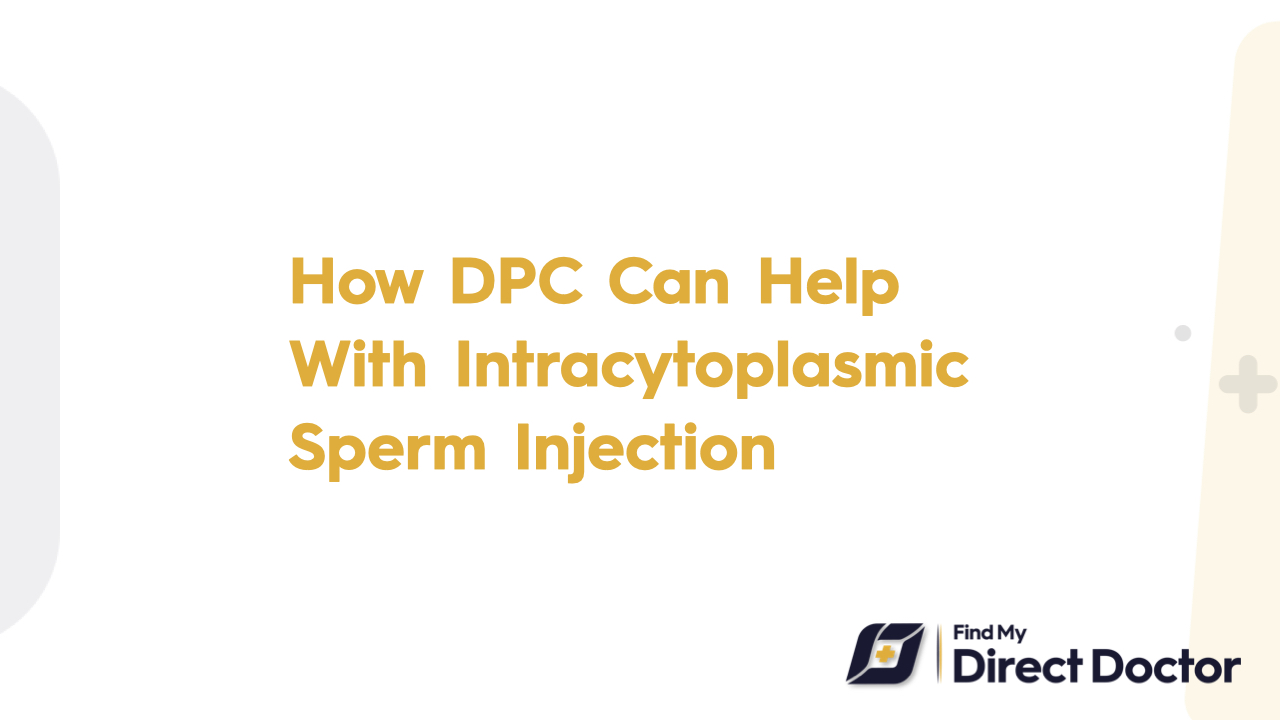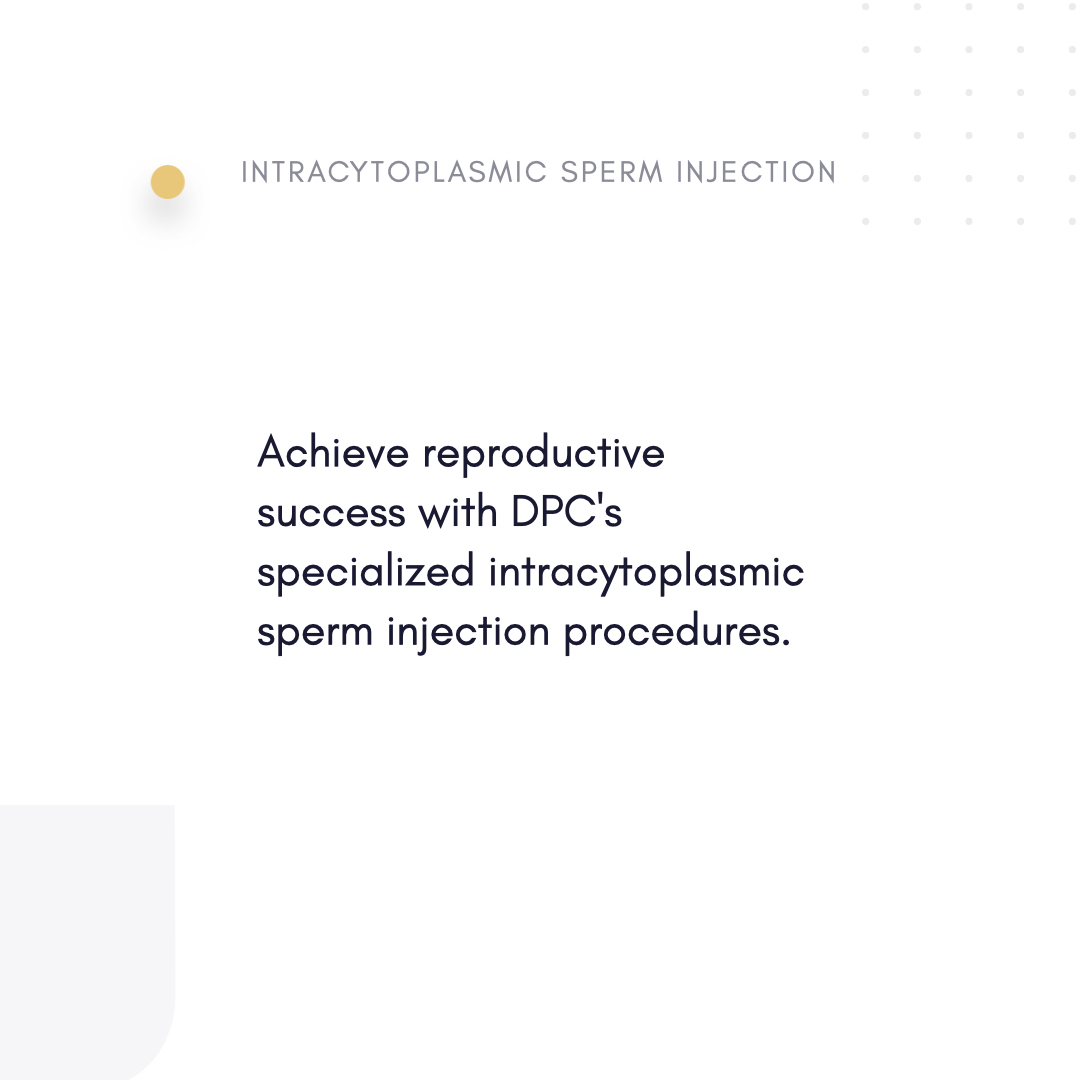Intracytoplasmic Sperm Injection (ICSI) and Direct Primary Care (DPC): Precision Fertility Care, Personalized Support
If male factor infertility is getting in the way, ICSI can help you have a child. DPC makes sure that this cutting-edge IVF method is backed up by smooth communication and care that covers all aspects of the patient.

How to Get Pregnant as a Man: Understanding ICSI
ICSI is a way to get around natural barriers to fertilization by injecting a single sperm directly into an egg during IVF. It's used for:
- Severe male factor infertility, which means a low sperm count, poor motility, or an abnormal shape.
- Previous IVF failure: Issues with fertilization in conventional IVF.
- TESA, PESA, and microTESE are all surgical ways to get sperm.
Important information for patients:
- Uses: Treats genetic sperm problems, oligospermia, and azoospermia.
- Safety: There is a slightly higher risk of birth defects (1–2% vs. 1% in natural conception).
- Costs: DPC gets lower rates for IVF and ICSI; the average cost is between 15,000 USD and 20,000 USD per cycle.
Risks of delaying treatment:
- As women age, their ability to have children decreases.
How DPC Increases the Chances of ICSI Working
Direct Primary Care (DPC) is a good fit for reproductive endocrinology because it puts the patient first and coordinates care:
1. Complete Pre-ICSI Evaluation
- Testing male fertility: examining sperm, DNA fragmentation, and hormone levels.
- Women have tests to check their ovarian reserve (AMH, AFC) and tubal patency (HSG).
- Bettering your way of life: Advise taking antioxidants, quitting smoking, and staying at a healthy weight.
2. Easier to work with fertility specialists
- On time referrals: Plan ICSI with the best reproductive endocrinologists (REIs).
- Finding your way through insurance: Help people get IVF/ICSI coverage when they can.
- Financial help: Make deals with IVF clinics that include everything.
3. Help with emotional and physical problems
- Always available: Quickly take care of side effects from injections, like OHSS or anxiety.
- Find a therapist who helps people who can't get pregnant for mental health help.
- After the procedure, watch for signs of early pregnancy and take care of any problems that come up.
Real-Life Success Stories
- Case 1: John and Emma, who are both 34 years old, have very low sperm counts. DPC coordinated ICSI with TESE sperm, which resulted in the birth of healthy twins.
- Case 2: Maria, 38, had tried IVF before and failed. DPC's lifestyle changes made the eggs better, and ICSI led to a successful pregnancy.
ICSI in DPC: Questions That Are Often Asked
- Q: What sets ICSI apart from regular IVF?
- A: ICSI puts sperm into eggs, while IVF lets sperm fertilize eggs on its own. DPC helps you find the best way.
- Q: Can ICSI use sperm from a donor?
- A: Yes. DPC helps you get in touch with lawyers and cryobanks.
- Q: Do they check embryos for genetic problems?
- A: Not needed. DPC makes it easier to do PGT-A/PGT-M tests to find genetic or chromosomal problems.
- Q: What if the surgery doesn't find any sperm?
- A: DPC talks about adoption or donor sperm options with care.
Why DPC is the best place to go for help with getting pregnant
The American Society for Reproductive Medicine (ASRM) stresses how important it is to work together. DPC gets things done by:
- Reducing the time people have to wait: In the past, it took 3 or more months for 90% of people to start ICSI. Now it only takes a month.
- Making things safer: 95% compliance with ovarian reserve testing lowers the chances of overstimulation.
- Saving money: Members save 3,000 USD to 7,000 USD per cycle by negotiating rates.
Final Thoughts
With DPC, you have a partner who helps you with medical problems, speaks up for your needs, and stays with you from the first appointment until you hold your baby. No broken care or surprise costs—just a group of people who want to help you make the family you want.






